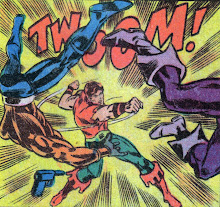I'm stealing from myself again. Mostly because I'm ready to go home but I don't want to neglect posting yet another day. So here's some follow up thoughts from my earlier post. Thanks to a new friend for the thoughtful response to that post that prompted me to expand and, maybe, clarify.
Speaking in HUGE generalizations that are unfair to both sides - "conservative" Christians in the 19th and 20th centuries emphasized belief in the Bible on things like the Resurrection but over-spiritualized what Jesus says about violence and about love for enemies and care for the poor, widows and orphans - which is a huge theme not just from Jesus but throughout Exodus, Leviticus, Deuteronomy, and the prophets (Isaiah, Micah, Jeremiah, Amos, etc.). "Liberal" Christians in the same period have emphasized what's been called the social gospel - caring for the poor and the hungry - choosing to emphasize belief in the Bible (the same books I just mentioned) when it talked about those things, while overspiritualizing what it said about the Resurrection, the Virgin Birth, and miracles generally. This is in my opinion a sad fact of history.
"Conservative" Christians didn't like the (in their and my opinion) overspiritualizing (i.e. lack of faith in the actuality of) miracles and especially the Resurrection, and so they fought against the social gospel - which, however (in my opinion, again), was paying real attention to the substance of Jesus' teaching on loving your neighbor as yourself. Possibly, had the social gospel not been paired with theological liberalism, conservative Christians might not have fought so hard and been so suspicious of anyone who talked about applying Jesus's teaching to real life concerns. (Though critics could also charge that they were motivated by self-interest to argue - because let's face it, Jesus' claims and expectations are radical and scary.) "Liberal" Christians on the other hand couldn't believe that so-called Christians wouldn't join their social activism, and so were very contemptuous of the conservatives, and over time came to think of them as mean and not-too-bright. (THat's possibly the most unfair generalization I've made yet - but certainly that's the impression many liberal Christians give of their opinion of conservatives). Both sides came to see the other as unbiblical, and as the enemy, and failed to obey the biblical command to love your enemy, or pray for those who persecute you...both sides failed to listen...and in the meantime, the biblical message was split in two, and the two sides turned against each other, and the real teaching of Jesus was obscured for a long time. Good people on both sides trying to be faithful - but it was pretty much impossible for much of the 19th and 20th centuries for anyone in the USA to do anything without taking into account the conservative/liberal split. A great waste, I think.
(Interesting sidenote - a Baptist named Walter Rausenbusch was one of the first in the modern era to emphasize the Social Gospel, and was influenced by Charles Sheldon, who wrote the book "In His Steps" and came up with the WWJD phrase to influence his congregations. When they saw a poor person, he said, they should ask themselves "what would Jesus do" and then do likewise. He intended it to get his people to act like Jesus and help the poor and the needy. Ironically, when WWJD bracelets became popular in the 1990s, it was - as best as I can tell - in conservative churches, and was usually used with youth and children to emphasize behaving morally with regard to cliques, peer pressure, sexual behavior, not cheating on tests, not drinking, being generally "good" - but usually was not used to encourage care for the poor.)
By the way - conservative Christianity and liberal Christianity do not equate to conservative and liberal politics. There's a lot of overlap, certainly, and that's increased since the rise of Jerry Falwell/the Moral Majority/the Religious Right/etc. And in the last couple of years there's a push-back from folks along the theological left side - a push-back which, again, sometimes blurs the distinction between liberal/conservative politics and liberal/conservative theology. But when I'm saying "conservative Christian" I don't mean "Republican Christian." Likewise, one could be a liberal Christian and be conservative economically - that is, have a belief in helping the poor but not believe in welfare and therefore not be a democrat. Personally, if we're talking conservative and liberal politics? I don't have much faith that either side has a great approach to helping the poor. But political sides is not my main concern. My main concern would be for Christians to stop dividing the Bible against itself, place their faith in the resurrected Lord, and do the things he said to do. "Make disciples of all nations, teaching them to obey all the things I have commanded you to do." If we had more churches doing that, more church communities that would help people like me who are basically selfish and challenge and support us to step out in faith and obedience...
That would be something to see. And a thrill to be a part of.
Thursday, February 14, 2008
Cons and Libs pt 2
Posted by
Chris Cottingham
at
9:57 PM
![]()
![]()
Labels: emergent church, emerging church
Subscribe to:
Post Comments (Atom)




1 comment:
Since you mentioned the Great Commission in your blog, I thought this would be the perfect opportunity to let your readers know about something going on at Compassion International this week. For the past week, they sent 10 bloggers (I'm not sure how they were chosen) on a trip to Uganda to see the poverty first hand. Of course, the bloggers can't help but blog about their experiences. So, here's the link to their blogs: www.compassion.com/share/uganda-blog.htm. I hope it challenges you to put feet to the gospel like it did me.
Post a Comment